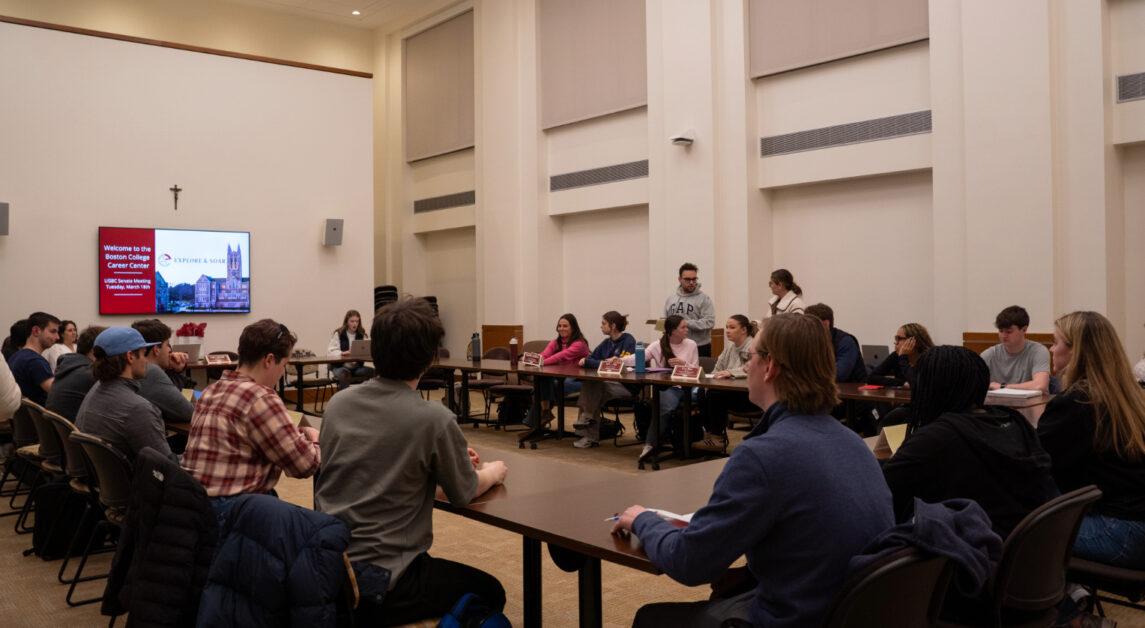Anne Applebaum, a journalist and Pulitzer-prize winning author, began her lecture on Soviet totalitarianism by reading aloud the anthem of the East German Communist Party.
The song extolls the virtues of the Communist Party: “the party, the party, she is always right. And Comrade, so it shall remain.”
She went on to explain that everyone in the period just after World War II sang this song, whether or not they agreed with it.
Applebaum covered the collapse of communism as the Warsaw correspondent for The Economist from 1989 to 1991. Since then, she has written for the Wall Street Journal and Washington Post, among others. She has also written several books.
“Communism seemed to some people like the only viable alternative to the Democratic capitalism which had failed so spectacularly in the 1930s,” she said.
Communism spread so successfully in part because the Red Army and the Soviet Secret Police were well prepared to lead a totalitarian takeover. They had already practiced in Russia’s Central Asian republics in the 1920s and in the Baltic states in 1939. Joseph Stalin, the leader of the Soviet Union, was confident that all of Europe would be Communist at some point, Applebaum said.
The radio was a key institution that the Soviets took hold of because, at the time, it was the most effective way to contact the most people at once. The Soviets had faith in the effectiveness of their own propaganda, so they knew certain kinds of people-predominantly low-income and working-class citizens-would support them no matter what, Applebaum said.
The radio was the most effective way of communicating to all of these people at once. “In those days the Secret Police cared about radio far more than newspapers or magazines partly because they reckoned radio was the medium that could reach the masses-the peasants and the workers whose support they expected to receive,” she said.
Applebaum then moved on to another of the Soviet Army’s techniques: targeted terror tactics. The Secret Police targeted prominent, elite people like ex-politicians and businessmen. They also targeted athletics, charities, anything remotely religious, and in particular, children’s groups. Christian Democratic youth group leaders were also at a huge risk, she said.
This was effective because they focused on anyone capable of leading or organizing a spontaneous demonstration. Applebaum also mentioned elements of society under control for seemingly no reason, like the Association of Christian Democratic Tobacco Workers in Hungary.
Independent music was also banned, as the Young Communist Movement demonstrated when members stormed into a Polish YMCA and destroyed all of the jazz records in 1949. Oddly, hiking clubs were also completely prohibited, she said.
“Ultimately, they were determined not only to control the government, the police, the media, and the economy, but also all the elements of what we now call civil society,” Applebaum said.
The Soviet government and army intended to create a totalitarian regime in Eastern Europe. Although they did not always succeed, the goal was for everything to be controlled by the state. By about 1948, Communist regimes controlled the economy, property, the political sphere, sports, leisure time, hospitals, universities, summer camps, children’s after-school activities, art, music, and museums, Applebaum said.
“That ambition to achieve total control put people in ethical and moral binds which we can hardly imagine today,” she said.












